(1483 products available)
























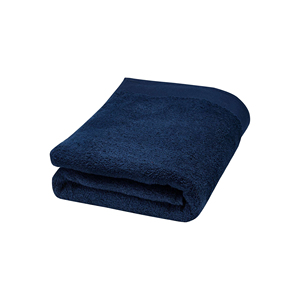
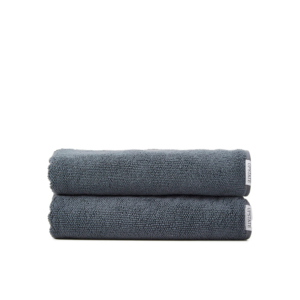
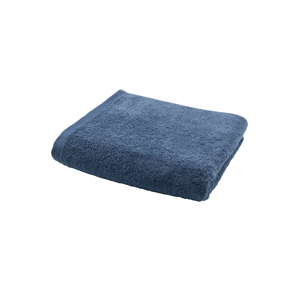


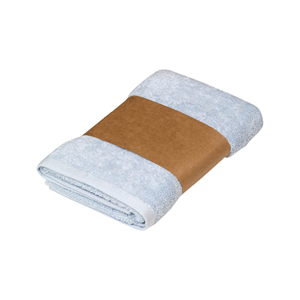




























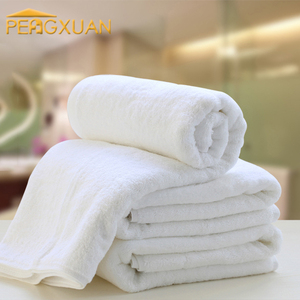


















































































































































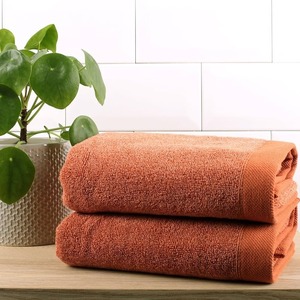
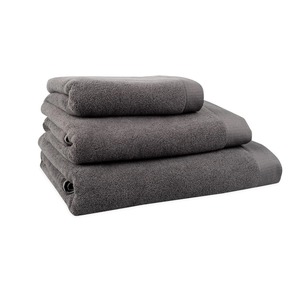
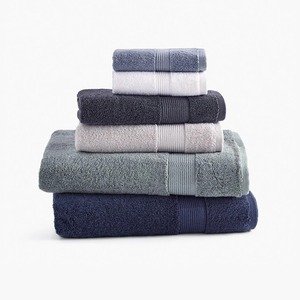
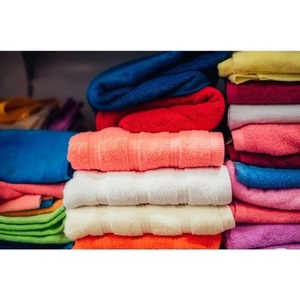






The Egyptian Towel is known for its superior absorbency and softness. There are different classifications of Egyptian towels based on their material, weave, and intended use. Understanding these classifications can help individuals choose the right kind of Egyptian towel that best meets their needs.
Classification based on material
Egyptian towels are famous for their high-quality cotton. Cotton is a natural fiber material that is soft, breathable, and absorbent. The classification of Egyptian towels can be based on the material used. In addition to the traditional Egyptian cotton, some towels may use bamboo fiber. Bamboo fiber has antibacterial properties and is also very absorbent. There are also towels made from flax linen. Linen is a natural fiber made from the flax plant, known for its strength and coolness. It is suitable for hot and humid climates.
Classification based on weave
Egyptian towels can also be classified based on how the fibers are woven together. The most common weave for towels is the terry weave. In terry weave, loops of yarn are woven so that they stick up on both sides of the towel. This creates a lot of loops, making the towel very absorbent. Another kind of weave is the flat weave. In flat weave, the yarns are woven together more closely without loops sticking up. Flat weave towels are thinner and lighter but not as absorbent as terry weave towels.
Classification based on intended use
Egyptian towels can also be classified based on their intended use or the specific purposes they are designed for. There are bath towels, hand towels, washcloths, beach towels, spa towels, gym towels, kitchen towels, and many more. Each type of towel is made to meet different needs in the bathroom, kitchen, at the beach, gym, spa, or for household cleaning and drying tasks.
Egyptian cotton is known for producing some of the finest towels in the world. The design of Egyptian cotton towels combines traditional craftsmanship with modern aesthetics to create luxurious and functional bathroom textiles. Here are some key aspects of the design of Egyptian cotton towels:
Material:
Egyptian cotton is a long-staple fiber known for its softness, strength, and absorbent properties. This natural fiber is the key material used in designing Egyptian cotton towels, allowing for excellent water absorption, softness against the skin, and durability for everyday use.
Weaving:
Egyptian cotton towels are woven using traditional techniques that have been passed down through generations. These techniques involve a tight weave that creates a smooth surface on the towel, enhancing its absorbency and making it more resistant to wear and tear.
GSM (Grams per Square Meter):
GSM is an important factor in designing Egyptian cotton towels. It indicates the weight and density of the towel. Higher GSM towels, such as bath towels or bath sheets, are typically heavier, softer, and more absorbent, while lower GSM towels, such as hand towels or facecloths, are lighter and quicker to dry. A balanced GSM is crucial for achieving the desired absorbency, softness, and drying speed in the design of Egyptian cotton towels.
Size and Shape:
Egyptian cotton towels come in various sizes to meet different needs. The typical size of a bath towel is about 70 cm × 140 cm (28 inches × 56 inches), while a hand towel is about 30 cm × 50 cm (12 inches × 20 inches). In terms of shape, Egyptian cotton towels are usually rectangular, which makes them easy to use and hang.
Color and Pattern:
The colors and patterns of Egyptian cotton towels are designed to add beauty and personality to the bathroom. They are usually available in solid colors, such as white, beige, or pastel shades, which highlight elegance and simplicity. In addition, Egyptian cotton towels may also have bordered designs, jacquard patterns, or embroidery to show their uniqueness and luxury.
Edge Treatment:
The edges of Egyptian cotton towels are treated to prevent fraying and extend the towel's lifespan. This may involve stitching, piping, or decorative elements that add to the towel's overall appearance.
Hotels and Resorts:
Hotel towels are used in the towel industry. Luxury hotels and resorts rely on Towel Egypt to deliver superior absorbent towels, which provide splendid cleaning experiences to visitors. These towels are used in guest rooms, bathrooms, swimming pools, gyms, spas, and beach areas, etc. High-quality cotton bath towels, soft and plush, are a sign of a hotel’s commitment to excellent service and customer satisfaction.
Home and Bathroom:
Cotton bath towels are essential supplies in people’s daily lives. They are used for bathing, wiping the body, cleaning the face, and wiping the hands. High-quality bath towels provide comfort, softness, and good absorption, ensuring a pleasant bathing experience. In addition to this, bath towels are also widely used in swimming pools, gyms, and spas. They are used to wipe the body, provide comfort, and meet the needs of users. Bath towels are an essential part of daily life and leisure activities, providing comfort and convenience for users.
Health and Medical Care:
Medical-grade towels are also used in the healthcare industry. Hospitals, clinics, and nursing homes need absorbent and easily disinfected towels to provide good care for patients. Egyptian cotton towels are used as bedding, wiping supplies, and surgical tools. The towel industry also produces specialized towels for the health and fitness industry. Cotton towels are used in fitness centers, sports facilities, and massage centers. They serve as body wipes, equipment cleansers, and surface wipes, among others. Gym towels are essential supplies for ensuring hygiene and comfort in healthy and fitness scenarios.
Kitchen and Dining:
Kitchen towels, hand towels, and napkins are used in the kitchen and dining. Cotton dish towels are used to wipe utensils, cookware, and tableware, to ensure the cleanliness and hygiene of cooking and dining. Hand towels and napkins are used to wipe the hands and faces, to provide comfort and hygiene during meals. Dish towels are essential supplies in daily life, providing comfort and hygiene for cooking and dining.
Material Quality:
When choosing Egyptian towels, the fabric is a crucial factor to consider. Egyptian cotton is known for its long fibers, making it one of the highest quality cottontypes. It's important to look for 100% Egyptian cotton when selecting Egyptian towels to ensure material authenticity. The quality of the cotton used will affect the softness, absorbency, and durability of the towels. Higher quality towels will be softer against the skin, soak up water better, and retain their appearance and feel over time compared to lower grades of cotton.
Thread Count:
Thread count refers to how many threads are woven together in a square inch of fabric. Similar to bed sheets, a higher thread count in towels is generally preferable. It signals denser, softer, and more absorbent towels. For Egyptian cotton towels, people tend to aim for a thread count of at least 600 for optimal quality. This ensures the towel will have a plush feel and good water absorption capabilities. However, an excessively high thread count may not be necessary, as it could make the towel too heavy.
Weight and GSM:
The weight of a towel is often indicated by its GSM, or grams per square meter. GSM is a good measure for determining a towel's absorbency, softness, and overall feel. In Egyptian towels, a higher GSM like over 600 would mean the towel is heavier, more absorbent, and softer—essentially like a luxury spa towel you would find at a high-end hotel. Conversely, a lower GSM around 300 would indicate a lighter, possibly more travel-friendly towel that may not hold as much water but would dry faster. Both heavier and lighter towels have their advantages depending on personal preferences for use. People just need to consider what they value more: plushness or quick drying for their Egyptian towels.
Color and Design:
Egyptian towels come in a range of colors and designs due to the country's rich history in textiles. When choosing, consider coordinating towel colors and patterns with the decor of the bathroom or kitchen where the towels will be used. This allows the towels to function not only as functional bathing accessories but also as decorative elements within the space. Stripes, solids, and intricate patterns are all options for personalizing the towel selection to match interior design themes.
Absorbency and Drying Time:
Absorbency is a key performance feature for choosing Egyptian towels, as people want the towel to soak up water efficiently after bathing or swimming. To check a towel's absorbency before purchase, some people suggest holding the towel by one corner and seeing if it quickly falls back down instead of staying suspended in the air. This indicates the fibers are packed tightly enough to allow for quick absorption. Additionally, if fast drying is also desired, then opting for a lighter weight towel rather than one with a higher GSM would be better suited for this purpose. Higher GSM towels would take longer to dry out fully after use.
Q1: What makes towel Egypt special compared to other towels in the market?
A1: Towel Egypt is known for its superior absorbency, softness, and durability, made from high-quality Egyptian cotton.
Q2: Can towel Egyptians be used for purposes other than bathing?
A2: While primarily used for bathing, towel Egyptians can also be used for purposes such as swimming, gym, and beach activities due to their absorbent nature.
Q3: How should towel Egyptians be washed to maintain their quality?
A3: To maintain the quality of towel Egyptians, they should be washed in cold water using a mild detergent and tumble-dried on a low heat setting.
Q4: Are towel Egyptians suitable for individuals with sensitive skin?
A4: Yes, towel Egyptians are made from natural fibers and are gentle on the skin, making them suitable for individuals with sensitive skin.
Q5: What are the dimensions of a standard towel Egyptian?
A5: The dimensions of a standard towel Egyptian may vary depending on the type, but a standard bath towel usually measures 70cm x 140cm.